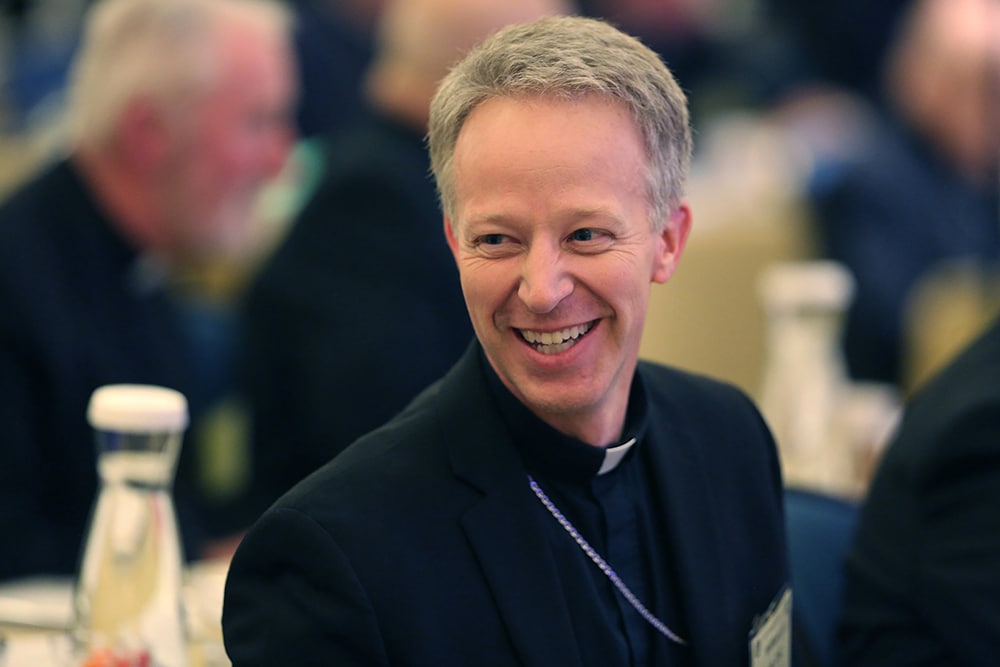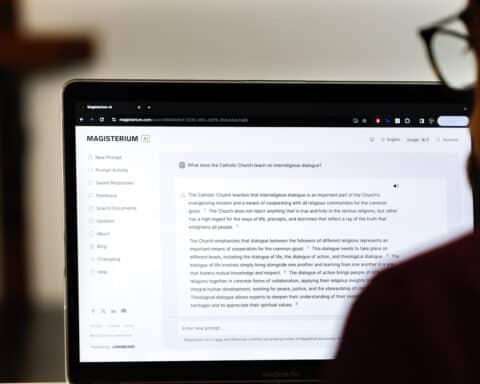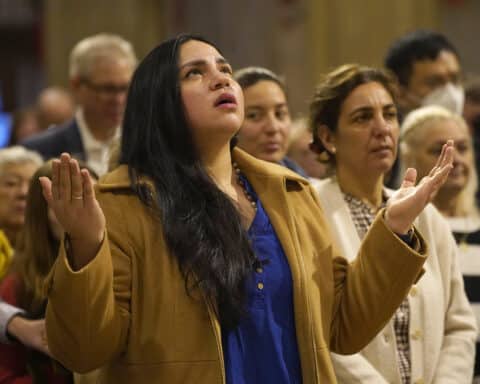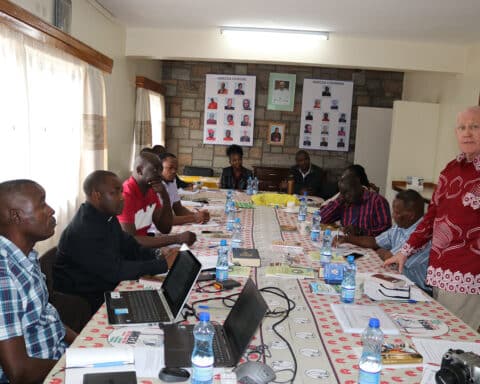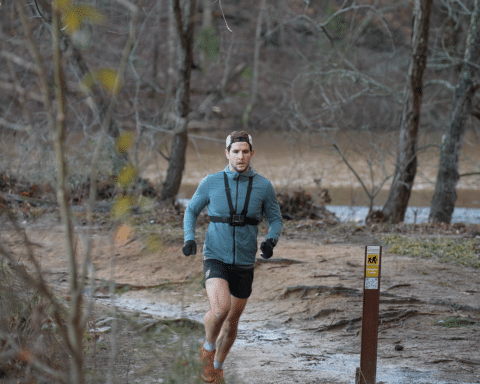WASHINGTON (CNS) — Evangelization “is fundamental to who we are as Christians,” Bishop William A. Wack of Pensacola-Tallahassee said in a Nov. 3 interview about why he chose that topic for the first pastoral letter he has issued since becoming the shepherd of the Church in Florida’s panhandle in 2017.
“It is something so positive and we need that right now in the midst of acrimony and confusion,” he told Catholic News Service. “The Holy Spirit is calling us back to our roots as apostolic community.”
Installed Aug. 22, 2017, Bishop Wack, 54, said he waited to issue his first pastoral until he could get to know the Catholic community some, and he spent the first couple of years “trying to figure out” what he was doing and “to find my legs as a new bishop.”
Titled “Sharing the Gift,” the 20-page pastoral was released in a digital format Nov. 4 and in document form Nov. 5, a day before the anniversary of the establishment of the diocese in 1975.
“‘The Church exists to evangelize!’ The words of Pope St. Paul VI encapsulate the Christian mission,” he wrote. “Put simply, if we believe that Jesus Christ suffered and died for us, and then rose again to set us free from sin and death, we are compelled to share that good news with everyone around us.”
The pastoral letter is a call to action to the 64,077 Catholics in the diocese, which covers the 18 most northwestern counties of Florida.
“In this letter, I hope to instruct, exhort and join you in living as a missionary disciple of our Lord. I ask all the faithful in the Diocese of Pensacola-Tallahassee to read it, pray with it and put it into practice so as to heed Jesus’ call: ‘Go and make disciples of all nations.’ (Mt. 28:19).”
“It’s something very practical for people in the pews,” he told CNS. “(It’s) directed to them so they embody the message.” In the pastoral and in his talks around the diocese, he added, he aims to “break it down” as to how, simply, “can you share the Gospel.”
In the interview and the pastoral, he noted that Catholics number just 5% of the population in the area covered by the diocese.
“Being in the Deep South, the panhandle, … we’re used to being in the extreme minority. … We’re used to defending the Faith,” he told CNS.
“Here there’s so much potential” for evangelization, he said. When people remark on the small percentage of Catholics in that part of Florida, he looks at the 95% of “our neighbors” who are not Catholic. That’s potential, he said. “I’m a born optimist.”
In the pastoral, he said a good place to begin evangelizing is to invite “everyone within our 18 counties to consider joining us in full communion with the Catholic Church” and reach out to those who are there serving long and short stints with the military, are seasonal residents or are there on vacation.
The diocese also “is blessed to welcome tens of thousands of students into our community every year at Florida State University, the University of West Florida, Florida A&M University and many other local colleges,” he said. “Campus ministry has been and will continue to be an important point of evangelization.”
“Our brothers and sisters in the many prisons and jails in northwest Florida look to us for support, prayer and a connection to the Gospel of Jesus Christ,” he added.
It’s not an “exhaustive list,” he noted, but it highlights “specific opportunities” in the diocese to spread the Good News of Christ.
“Evangelization, put simply, is a means to awaken in people’s hearts a love of God and an adherence to the Gospel of Jesus Christ,” he wrote, and offered suggestions and guidelines for what Catholics can “do to participate in Christ’s mission and continue his work of evangelization.”
These include:
— Remember “evangelizers must first be evangelized,” so “learn as much as you can about our Catholic faith” — by reading the Catechism of the Catholic Church, sacred Scriptures, the writings of the saints and the Church’s teaching.
— “Ask the Holy Spirit to enlighten you and to deepen your relationship with God. Never cease to grow in the practice of the Faith,” he wrote, quoting Pope Francis, who has urged believers “to see the entirety of your life as a mission. Try to do so by listening to God in prayer and recognizing the signs that he gives you.”
— Go to Mass and receive the sacraments regularly.
— “Share the joy of the Gospel. Do not be afraid to give an account of yourself to others. Tell people what it means to you to be Catholic. … Start simply by establishing a friendship with someone. … Walk with them and listen to them. Tell them about how you know the Lord and how much joy that gives to you.”
— “Invite people to church or Bible study, or simply ask if you can pray with and for them.”
— “Live your faith well as an example to others. Let people know that you practice your faith in your parish and in your home.”
— Be ready to articulate and defend the Faith at work, in grocery stores, airports, schools and wherever people gather.”
He included at the end a list of 10 saints “who will guide and assist us,” including Mary, the Mother of God; Sister Thea Bowman, a Franciscan Sister of Perpetual Adoration and a candidate for sainthood; and catechist Antonio Cuipa and companions, the “Martyrs of La Florida,” who also are sainthood candidates.
Bishop Wack remarked on his own faith formation growing up in a family of 10 children in Indiana.
“We were well-formed in prayer — the Rosary every night, Mass every Sunday,” he told CNS. “Our parents weren’t flashy about imparting the Faith to us.”
But, he said, they told their children to be joyful, “that we were children of God” who pray, help other people and “make the world a better place.”
Asked if he hoped his pastoral would reach the “nones” — the growing number of young people who say they are perhaps spiritual but do not belong to any formal religion — Bishop Wack told CNS he doesn’t expect them to read the pastoral letter.
But he thinks if diocesan Catholics take up the challenge to “share the Gospel,” that “may be the spark they need.”
– – –
Bishop Wack’s pastoral can be found in English here and in Spanish.

